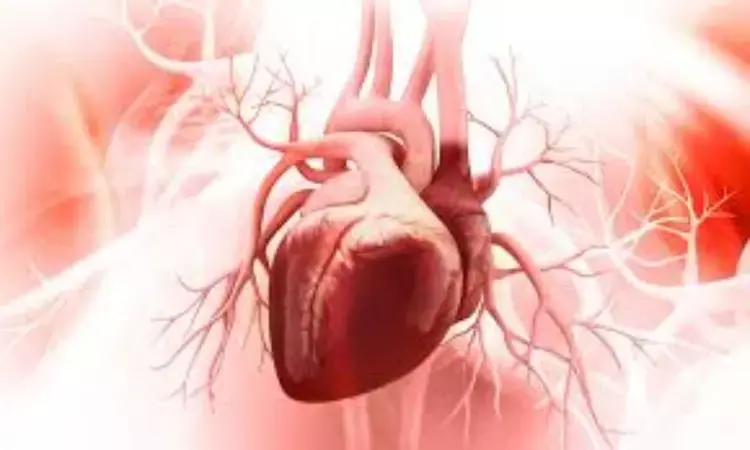- Home
- Medical news & Guidelines
- Anesthesiology
- Cardiology and CTVS
- Critical Care
- Dentistry
- Dermatology
- Diabetes and Endocrinology
- ENT
- Gastroenterology
- Medicine
- Nephrology
- Neurology
- Obstretics-Gynaecology
- Oncology
- Ophthalmology
- Orthopaedics
- Pediatrics-Neonatology
- Psychiatry
- Pulmonology
- Radiology
- Surgery
- Urology
- Laboratory Medicine
- Diet
- Nursing
- Paramedical
- Physiotherapy
- Health news
- Fact Check
- Bone Health Fact Check
- Brain Health Fact Check
- Cancer Related Fact Check
- Child Care Fact Check
- Dental and oral health fact check
- Diabetes and metabolic health fact check
- Diet and Nutrition Fact Check
- Eye and ENT Care Fact Check
- Fitness fact check
- Gut health fact check
- Heart health fact check
- Kidney health fact check
- Medical education fact check
- Men's health fact check
- Respiratory fact check
- Skin and hair care fact check
- Vaccine and Immunization fact check
- Women's health fact check
- AYUSH
- State News
- Andaman and Nicobar Islands
- Andhra Pradesh
- Arunachal Pradesh
- Assam
- Bihar
- Chandigarh
- Chattisgarh
- Dadra and Nagar Haveli
- Daman and Diu
- Delhi
- Goa
- Gujarat
- Haryana
- Himachal Pradesh
- Jammu & Kashmir
- Jharkhand
- Karnataka
- Kerala
- Ladakh
- Lakshadweep
- Madhya Pradesh
- Maharashtra
- Manipur
- Meghalaya
- Mizoram
- Nagaland
- Odisha
- Puducherry
- Punjab
- Rajasthan
- Sikkim
- Tamil Nadu
- Telangana
- Tripura
- Uttar Pradesh
- Uttrakhand
- West Bengal
- Medical Education
- Industry
ARNI linked with reduced risk of all-cause mortality in patients with HFrEF or HFmrEF: Study

Sweden: Patients with heart failure with reduced (HFrEF) or mildly reduced EF (HFmrEF) who received ARNI according to the guideline-led Swedish clinical practice are at reduced risk of all-cause mortality versus ACEi/ARB, a recent study has shown.
The study's findings, published in the Clinical Research in Cardiology, align with the mortality results of the randomized trial, PARADIGM-HF. However, no difference was seen in the hospitalization rate in real-world treatment with angiotensin receptor–neprilysin inhibitor (ARNI) versus angiotensin receptor blocker/angiotensin-converting enzyme inhibitor(ACEi/ARB) in Sweden.
"Our findings are timely to boost the understanding of ARNI's effectiveness in routine clinical practice in Sweden in line with the 2021 update to the ESC HF guideline, in which ARNI is recommended for HFrEF and HFmrEF management," Michael Fu, University of Gothenburg, Gothenburg, Sweden, and colleagues wrote in their study.
Sacubitril/valsartan is a first-in-class ARNI with a class-1 guideline recommendation. The research team assessed the real-world effectiveness of ARNI compared to ACEi/ARB on hospitalization and all-cause and cardiovascular (CV)-related mortality in heart failure with reduced or mildly reduced ejection fraction.
For this purpose, the researchers derived patient-level clinical, drug dispensation, mortality, hospitalization, and laboratory data from interlinked databases and the Swedish Heart Failure Registry (SwedeHF). They assessed hospitalization and mortality with ARNI (n=1506) versus ACEi/ARB (n = 17,108) using propensity score matching in the ratio of 1:1 with sensitivity analysis and clinical variables. Eligible ARNI (n=7275) versus ACEi/ARB patients (n=24,604) had a left ventricular EF < 50%.
The study led to the following findings:
- ARNI led to a 23% reduction in all-cause mortality compared to ACEi/ARB (1:1 hazard ratio [HR]: 0.77) and a non-significant 23% relative risk reduction (RR) in CV-related mortality (0.77), but no difference was seen in all-cause or CV-related hospitalization (1.02; 1.01 respectively).
- Sensitivity analyses confirmed a reduction in all-cause mortality for ARNI versus ACEi/ARB (HR 0.90) but not CV-related mortality (HR 1.04).
In the nationwide real-world study, comprising a population of patients with HF with reduced or mildly reduced EF, ARNI as part of guideline-led Swedish clinical practice was linked with a statistically significant relative RR in all-cause mortality compared with ACEi/ARB.
Reference:
Fu, M., Pivodic, A., Käck, O. et al. Real-world comparative effectiveness of ARNI versus ACEi/ARB in HF with reduced or mildly reduced ejection fraction. Clin Res Cardiol (2022). https://doi.org/10.1007/s00392-022-02124-w
Dr Kamal Kant Kohli-MBBS, DTCD- a chest specialist with more than 30 years of practice and a flair for writing clinical articles, Dr Kamal Kant Kohli joined Medical Dialogues as a Chief Editor of Medical News. Besides writing articles, as an editor, he proofreads and verifies all the medical content published on Medical Dialogues including those coming from journals, studies,medical conferences,guidelines etc. Email: drkohli@medicaldialogues.in. Contact no. 011-43720751


